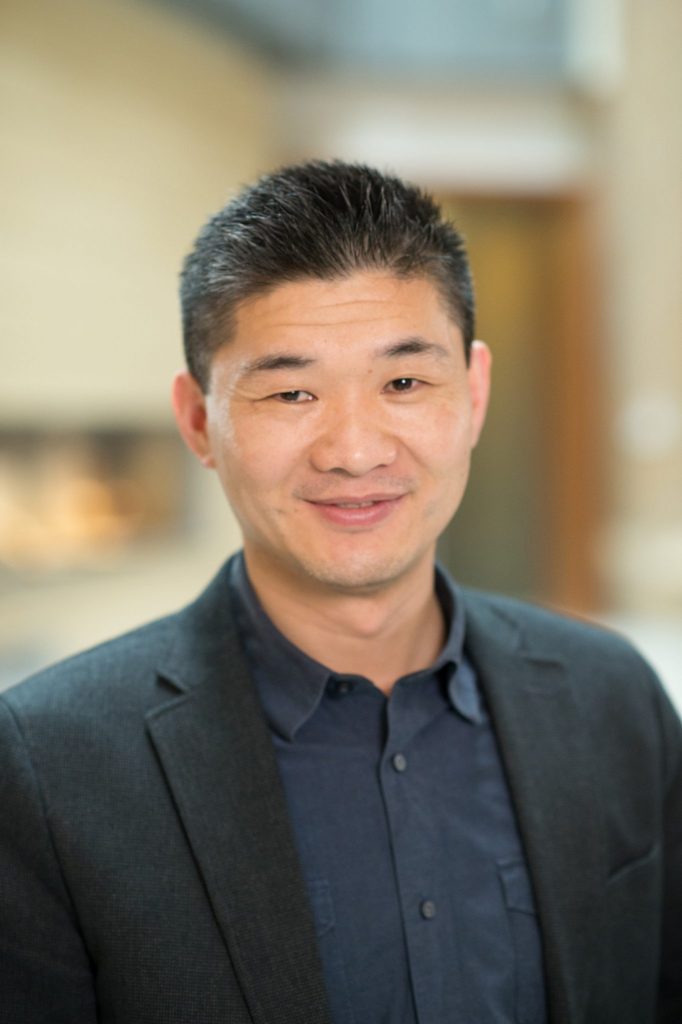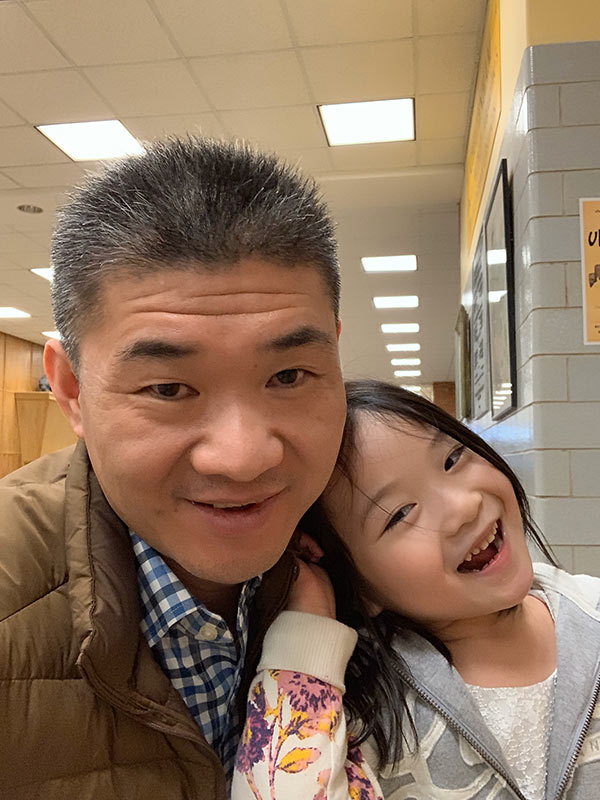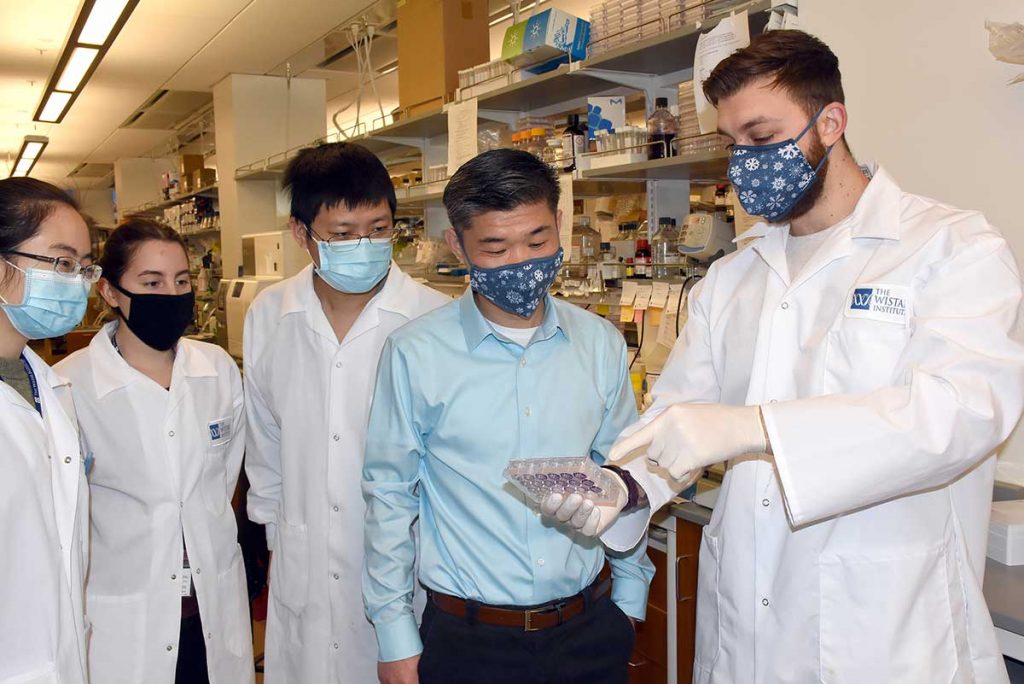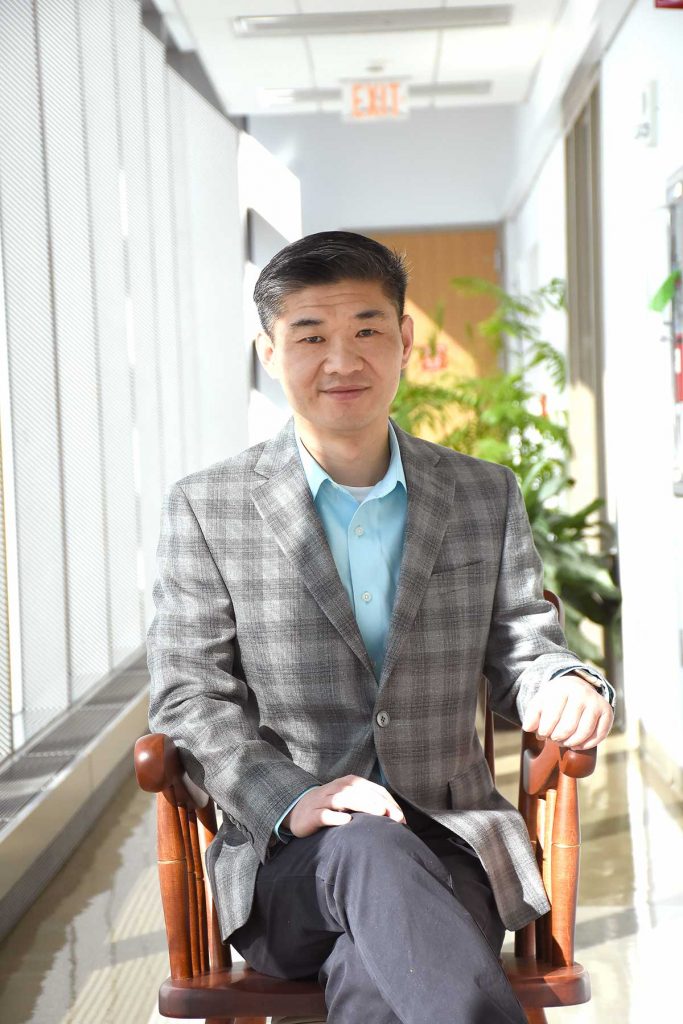
Imagine, if you will, a scene from yesteryear: rows of telephone operators sitting in front of giant switchboards, lights blinking on and off in seemingly random patterns, hands working quickly to plug and unplug wires in order to foster connections.
If you can picture that, you can begin to get a sense of the impact Dr. Rugang Zhang is hoping to make by developing epigenetic therapies to fight ovarian cancer.
Partners in the fight against ovarian cancer
Rugang Zhang, Ph.D., is deputy director of The Wistar Institute Cancer Center, and professor and program leader of the Immunology, Microenvironment & Metastasis Program at The Wistar Institute. Rugang is also an OCRA grantee, having first been awarded the Liz Tilberis Early Career Award in 2008, and later the Collaborative Research Development Grant in 2019.
He sees OCRA and its support of his work as more than a funding agency, but rather as a partner. “You really served as a launch pad,” he said about the start of his independent career. “I had no background whatsoever to study ovarian cancer. I had no publications on ovarian cancer. You provided me with trust and encouragement and prepared me for the next level.”
It’s this trust that has cemented his interest and commitment of more than a decade into the field of ovarian cancer research. An interest that began nearly 30 years ago, from halfway around the world.
The power of education
Rugang grew up on a farm in rural China. It was not an easy life. He was often hungry. But he assumed he would grow up to lead a similar life as his parents. At that time, in the early 1990’s, the expense of a college tuition in China wasn’t the obstacle. It was being able to score well enough on the tests to even be able to apply to school. In the cities, one in every 30 high school students went to college. In the countryside, it was even more difficult. Besides, the priority in the countryside was to make money, not get a good education.
Yet, Rugang knew that it would only be through an education that he could change the fate that was seemingly predetermined by which family one was born into. And in his first year of high school, his family got a ‘wake-up call’ that would change Rugang’s perspective of his future.
“My mom was not feeling well, and they thought she had some type of tumor in her reproductive tract,” Rugang said. “In the countryside of China, if you got cancer, that’s pretty much a death sentence.”
Luckily, two months after that scare, further testing revealed that she did not have cancer. But in that time, Rugang grew up fast. “I completely changed myself, committed to study extraordinarily hard. From that point on, I maintained number one in my class.”
And in a graduating class of nearly 300, Rugang was the only one who got into college.
Focusing on science
Rugang had a deep interest in biology and might have gone onto medical school had he been allowed. But he is color blind, and in China, that precluded him from getting an MD. Instead, rather than teach biology in high school as his degree was preparing him for, he decided to pursue his doctorate in research. And in 2002, he came to the United States to do his post-doc work at the University of Pennsylvania.
While doing his second post-doc at Fox Chase Cancer Center, he attended medical seminars and discovered that there was an unmet need in ovarian cancer research. Whereas other cancers, at that time, had advanced beyond chemotherapy as standard of care treatment, ovarian cancer had not.

“When I was looking for jobs, I wanted to find an area where I could potentially make an impact,” Rugang said about the ovarian cancer field. “I felt as a biologist, I could potentially make a difference.”
He was also drawn to ovarian cancer in large part because of the false alarm his mother had experienced when he was in high school. “I just imagined how my life would be completely changed. I don’t think I would have gone to college. I most likely would have quit high school and would have had to make money to support my family.”
He thinks about other families, and his motivation for his work is drawn from his deep desire to change the potential for them as well.
Explaining epigenetics
To go back to the metaphor of the operator at a switchboard, epigenetics is the process that regulates which cells in a tumor or its microenvironment (the area surrounding the tumor) get turned on and off; it affects the function of these cells. Unlike mutations, which are permanent alterations of the genetic code, epigenetics – and the cellular changes that occur through that process – are reversible. This makes it an ideal target for therapeutics.
Rugang is trying to better understand the epigenetic process as it relates to ovarian cancer tumors, in order to develop the right drugs to both attack the cancer cells and boost the anti-tumor immune cells. Furthermore, he is studying specific epigenetic alterations in a rare genetic mutation – ARID1A – that can be treated with precision medicine, much in the same way that doctors now know how to treat patients with BRCA mutations using PARP inhibitors.
Naming the motivation
Rugang recalls his early days in the lab, when a medical oncologist fellow would always run upstairs to the lab to tell him when she met with a patient who had a strange case of ovarian cancer. He wanted to understand it better. And then his mentor – and at the time OCRA Scientific Advisory Committee member – Dr. Michael Seiden suggested that he should focus on a rare type. This led him to focus on the ARID1A mutation, which occurs in ~50% of patients with clear cell ovarian cancer, itself a very rare form of the disease.

“Some people say, ‘oh, this only affects 10% of patients.’ I come to that argument by looking at that 10% and imagining that every year the mortality rate is 22,000 people,” Rugang said about the ~1,000 who might be affected by ARID1A. “That’s a lot of people, a lot of family and their community.”
Rugang believes that if you save even one life, you are really saving countless others – that person’s family, their friends, their community. “You save a circle of people. That’s really, at the end of the day, the motivation.”
For Rugang, it’s not about publishing a paper, or getting another grant. “For sure,” he said, “it’s not about getting another recognition.” (Though, we would like to point out that Rugang has recently been awarded an endowed professorship by the Wistar Institute!) Those are just the tools, not the goals. For Rugang, it’s the patients themselves.
“Whenever you feel down, you want to take a break or give up, all you have to think of are these brave women who are battling the disease every minute of the day. You cannot be more inspired by these brave women. It’s just remarkable. To potentially help these women. That’s what keeps me going.”



